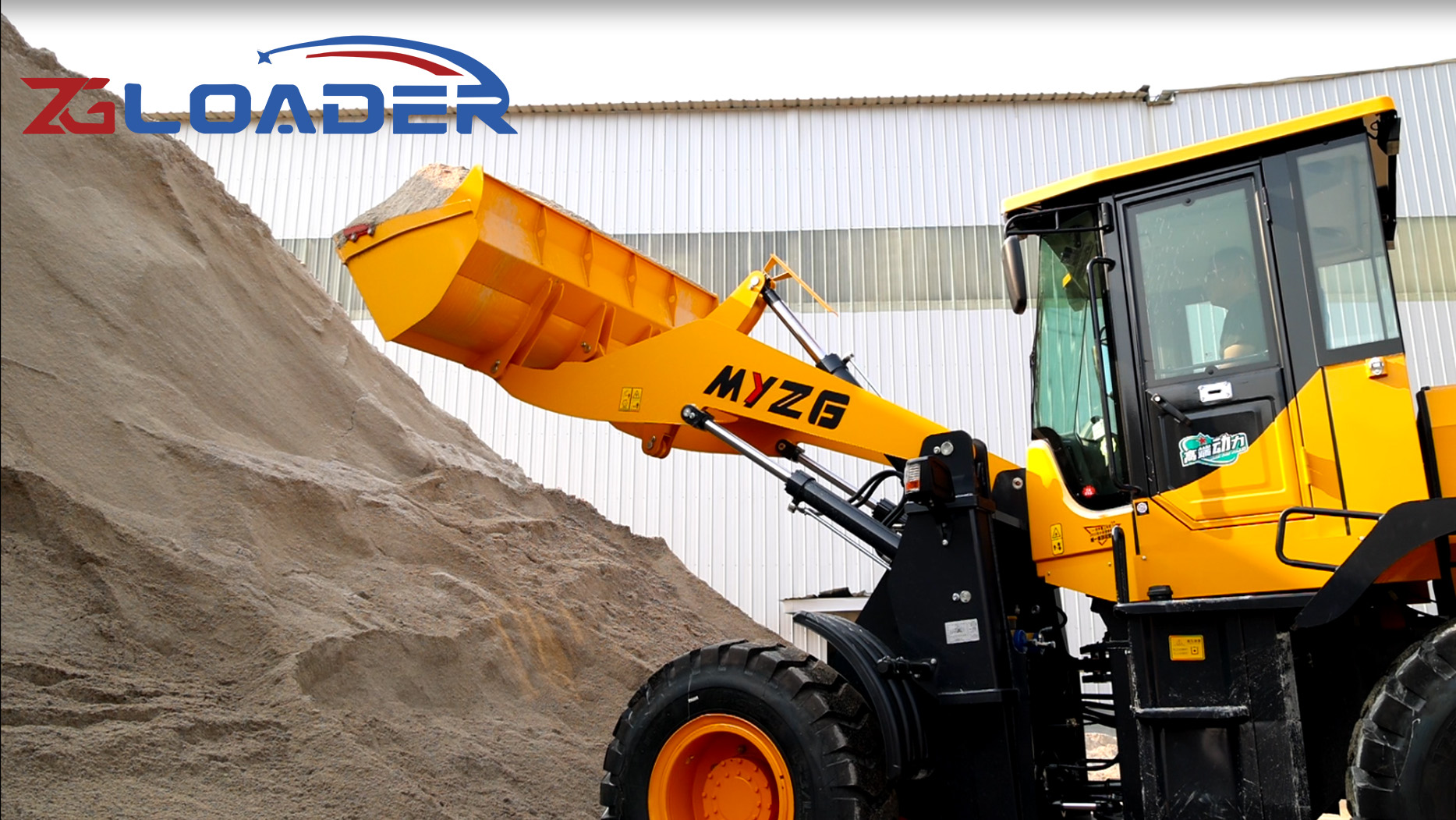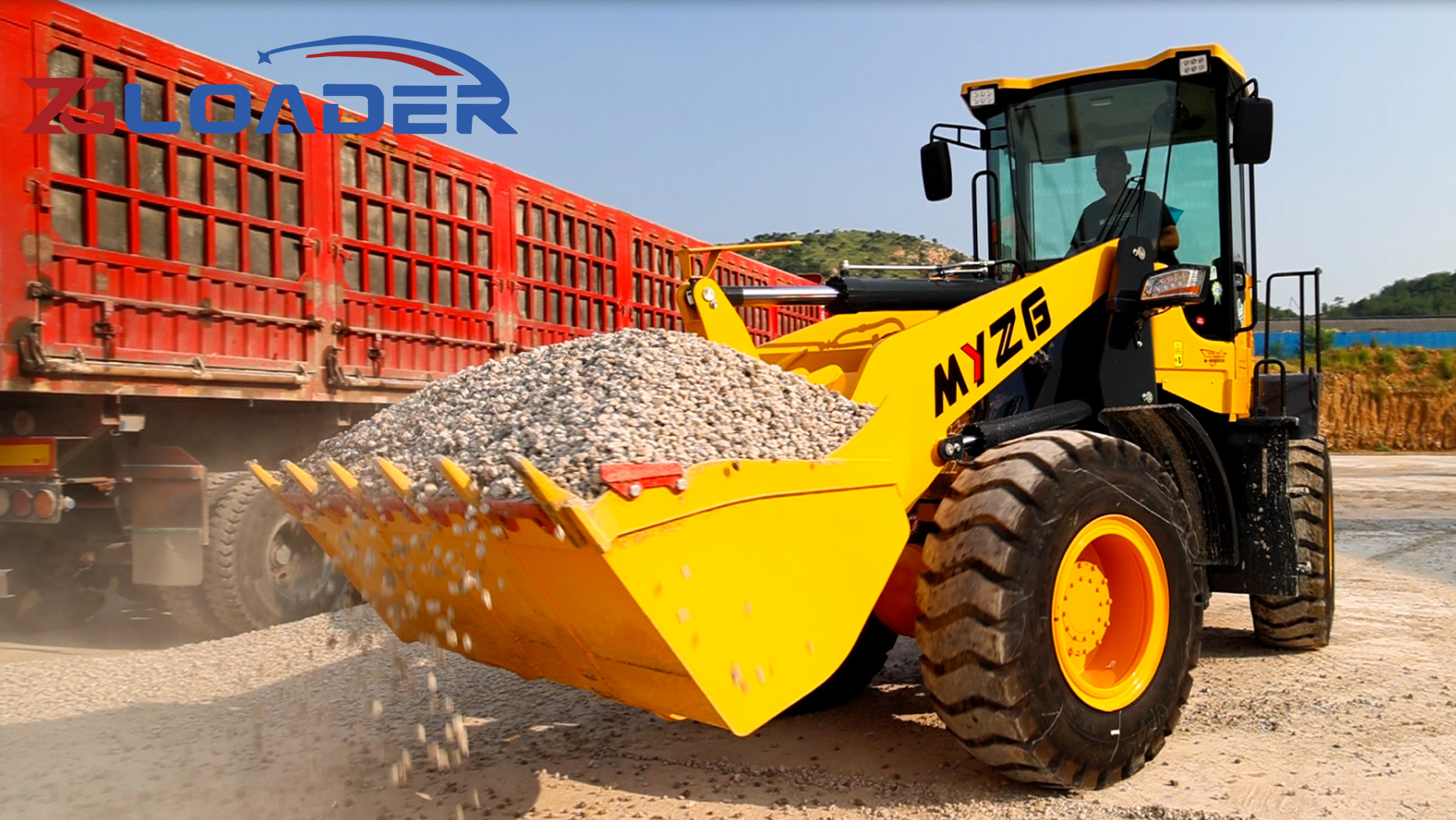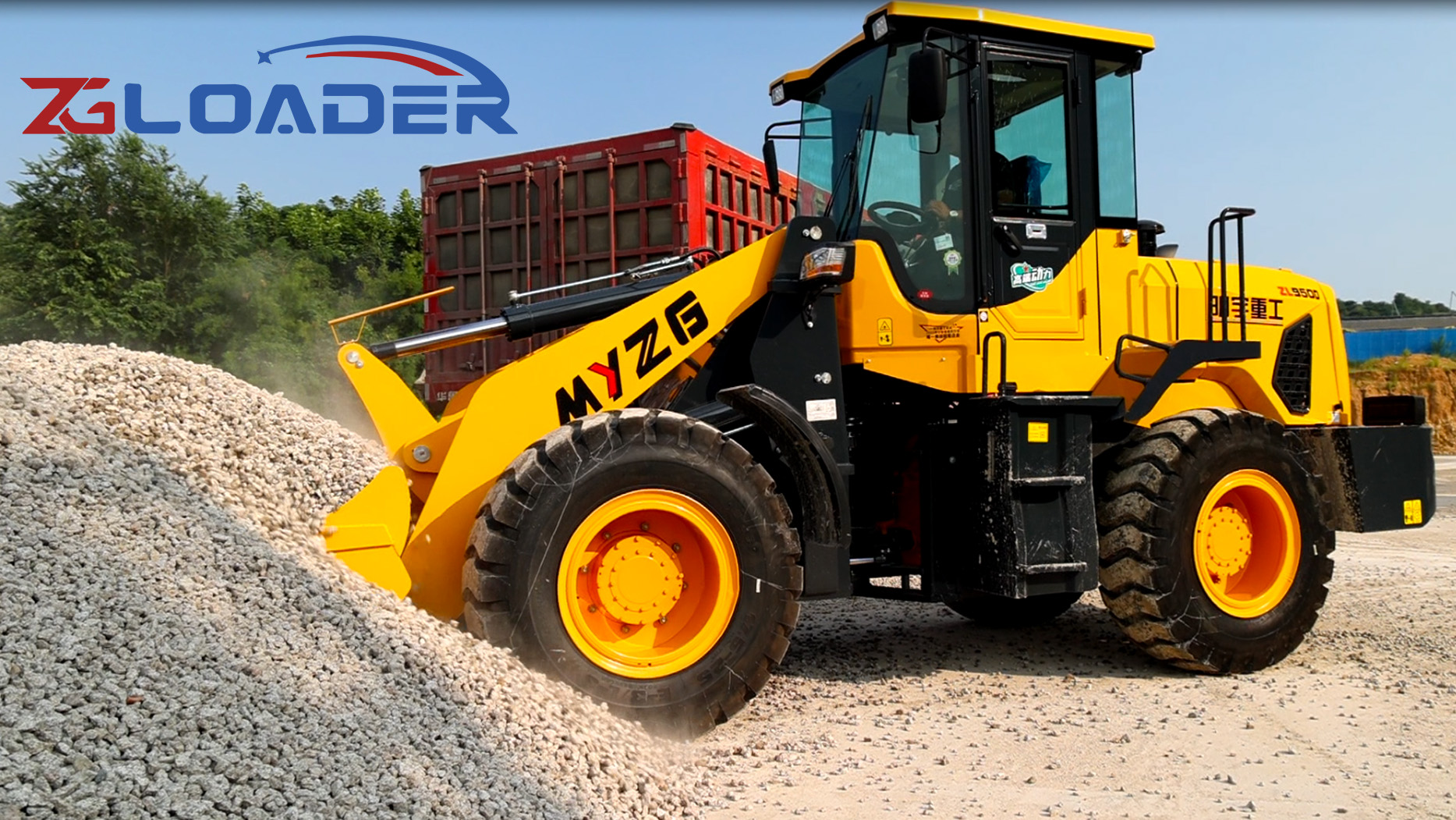I. Introduction
Wheel loaders are powerful and versatile machines crucial to various industries, including construction, mining, agriculture, and material handling. These heavy-duty vehicles are equipped with a front-mounted bucket used to scoop, lift, and transport a wide range of materials, from dirt and gravel to snow and debris.
A wheel loader operator is the skilled individual responsible for safely and efficiently operating these machines. This role demands a unique combination of physical and mental abilities, as well as a strong understanding of safety procedures and operational techniques. Skilled wheel loader operators play a vital role in ensuring productivity, minimizing equipment wear and tear, and maintaining a safe working environment. This article will delve into the key aspects of being a wheel loader operator, including their responsibilities, required skills, career development paths, and the critical importance of safety.
II. Key Responsibilities of a Wheel Loader Operator
The primary responsibility of a wheel loader operator is to safely and efficiently operate the machine to accomplish assigned tasks. This involves a wide range of duties, including:
Maneuvering the Machine: Safely and accurately maneuvering the wheel loader within the work area, including forward, backward, and turning movements.
Loading and Unloading Materials: Loading and unloading materials from trucks, hoppers, and other equipment, ensuring proper load distribution and stability.
Transporting Materials: Transporting materials within the work site, ensuring safe and efficient movement.
Following Operating Procedures: Adhering to established operating procedures and safety guidelines provided by the employer and relevant regulations.
Pre-Operational Checks:
Conducting Inspections: Performing thorough pre-operational checks before each shift, including inspecting fluid levels (engine oil, hydraulic fluid, coolant), checking tire pressure, and conducting a visual inspection for any signs of damage or leaks.
Load Handling:
Proper Loading Techniques: Employing proper loading techniques to ensure the load is evenly distributed and secure, minimizing the risk of spills or tipping.
Understanding Load Limits: Understanding and adhering to load limits to prevent overloading the machine and compromising safety.
Maintenance and Inspections:
Basic Maintenance: Performing basic maintenance tasks as required, such as checking and refilling fluids, cleaning the machine, and reporting any maintenance or repair needs to supervisors.
Identifying Potential Problems: Identifying and reporting any potential mechanical issues or safety hazards to supervisors for prompt resolution.
Safety and Compliance:
Adhering to Safety Regulations: Strictly adhering to all applicable safety regulations and procedures, including OSHA regulations and company safety policies.
Ensuring Workplace Safety: Actively working to ensure the safety of themselves, fellow workers, and the public.
Communicating Hazards: Communicating any potential hazards to supervisors or other workers.
III. Required Skills and Qualifications
Becoming a successful wheel loader operator requires a combination of physical and mental skills:
Physical Requirements:
Physical Fitness: Maintaining good physical fitness and stamina is essential for operating heavy equipment.
Strength and Coordination: Requires strength and coordination to operate the controls and handle the demands of the job.
Sensory Acuity: Good eyesight, depth perception, and hearing are crucial for safe and efficient operation.
Ability to Work in Various Conditions: Ability to work in various weather conditions, including heat, cold, and inclement weather.
Cognitive Skills:
Problem-Solving: Ability to quickly assess situations and solve problems that may arise during operation.
Decision-Making: Ability to make quick and informed decisions in dynamic and potentially hazardous situations.
Spatial Awareness: Strong spatial awareness and the ability to judge distances and clearances accurately.
Attention to Detail: Meticulous attention to detail is crucial for ensuring safe and efficient operation.
Technical Skills:
Mechanical Aptitude: Basic understanding of mechanical principles and how the wheel loader operates.
Hydraulic System Knowledge: Basic understanding of hydraulic systems and their role in operating the machine.
Ability to Perform Basic Maintenance: Ability to perform basic maintenance tasks such as checking fluid levels and conducting simple inspections.
Safety Training:
Formal Training: Completion of formal forklift operator training programs is essential.
OSHA Training: Completion of OSHA-approved safety training courses is highly recommended.
Understanding of Regulations: A thorough understanding of all relevant safety regulations and procedures.
IV. Career Development and Advancement
With experience and continued professional development, wheel loader operators can advance their careers in various ways:
Career Paths:
Supervisor Roles: Experienced operators may advance to supervisory roles, overseeing the work of other operators and managing equipment.
Equipment Maintenance Roles: Operators with strong mechanical aptitude may transition into equipment maintenance roles.
Specialized Operator Positions: Operators may specialize in specific applications, such as working in specialized industries like mining or forestry.
Continuing Education:
Advanced Training: Pursuing advanced operator training courses can enhance skills and increase earning potential.
Safety Certifications: Obtaining additional safety certifications can improve career prospects and demonstrate a commitment to safety.
Specialized Training: Specialized training in specific applications, such as working with specific attachments or in challenging environments, can increase earning potential and career opportunities.
Building a Strong Work Ethic:
Reliability and Dependability: Demonstrating a strong work ethic, reliability, and a commitment to safety is crucial for career advancement.
Teamwork: Developing strong teamwork skills and the ability to collaborate with other workers is essential in a team-oriented environment.
V. Importance of Safety in Wheel Loader Operation
Safety is paramount in all aspects of wheel loader operation.
Common Hazards:
Tip-overs: Improper loading or maneuvering can lead to tip-overs, which can result in serious injuries or fatalities.
Collisions: Collisions with other vehicles, pedestrians, or obstacles can cause significant damage and injuries.
Falling Objects: Falling materials from the bucket can pose a serious hazard to workers on the ground.
Injuries from Moving Parts: Entanglement in moving parts or contact with rotating components can result in serious injuries.
Safety Measures:
Pre-Operational Checks: Conducting thorough pre-operational checks to identify and address any potential safety hazards.
Proper Load Handling: Loading and unloading materials safely and efficiently, ensuring proper weight distribution and stability.
Maintaining a Clear Line of Sight: Maintaining a clear line of sight while operating the machine, avoiding blind spots and obstructions.
Communicating with Others: Communicating with other workers on the job site to ensure everyone is aware of the machine's movements and potential hazards.
Defensive Driving:
Anticipating Hazards: Practicing defensive driving techniques, such as anticipating potential hazards, maintaining a safe distance from other vehicles, and being aware of pedestrian traffic.
VI. Conclusion
The role of a wheel loader operator is demanding but rewarding. It requires a combination of physical and mental skills, a strong commitment to safety, and a continuous focus on professional development. By understanding their responsibilities, developing the necessary skills, and prioritizing safety in all aspects of their work, wheel loader operators can contribute significantly to the success of any construction or industrial operation.
Post time:Dec.27.2024



